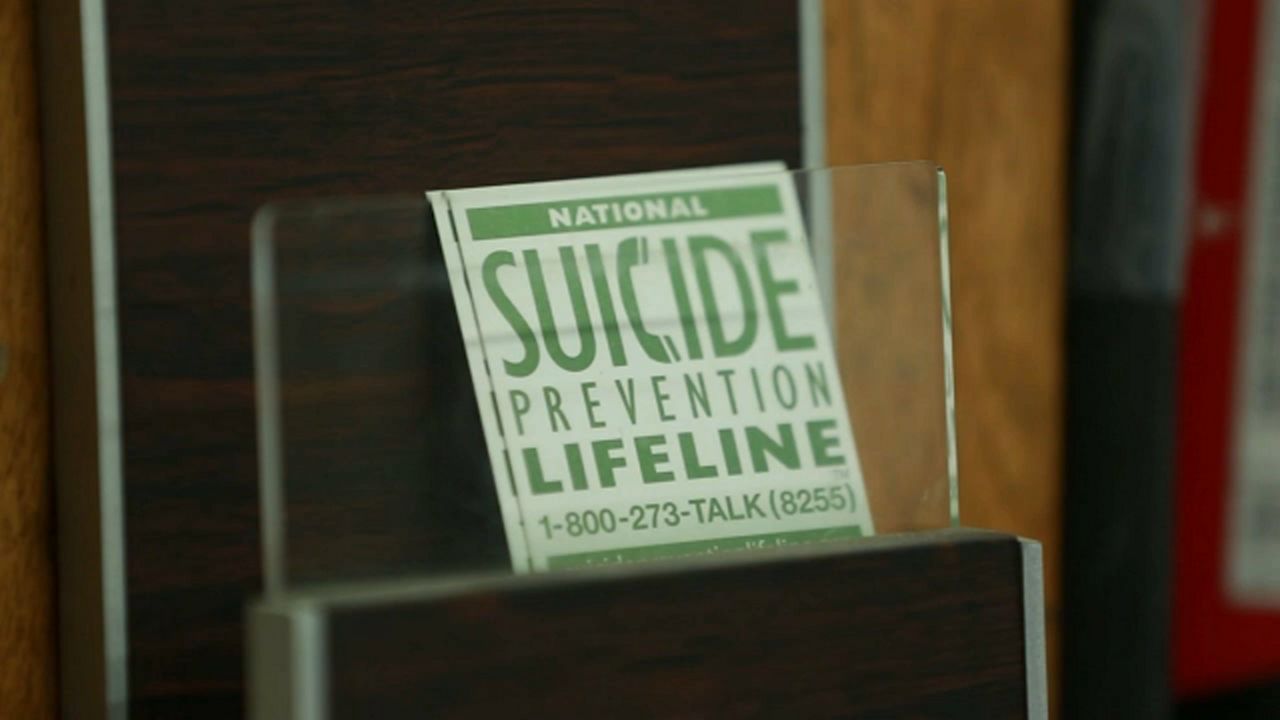MILWAUKEE (SPECTRUM NEWS) — World Suicide Prevention Day is observed on September 10 every year, and Wisconsin health officials are working to raise awareness regarding the subject of suicide.
Gov. Tony Evers proclaimed September as Suicide Prevention Month, as suicide is a public health issue in Wisconsin. Wisconsin's suicide rate increased by 40% from 2000-2017, according to the Wisconsin Department of Health Services. In 2019, 850 Wisconsin residents died by suicide.
The WDHS shared five action steps for helping someone that might be struggling:
Ask: Asking the question “Are you thinking about suicide?” communicates that you’re open to speaking about suicide in a non-judgmental and supportive way.
Be there: This could mean being physically present for someone, speaking with them on the phone when you can, or any other way that shows support for the person at risk. Listen carefully and learn what the individual is thinking and feeling.
Keep them safe: Reducing a suicidal person’s access to highly lethal items or places is an important part of suicide prevention. While this is not always easy, asking if the at-risk person has a plan and removing or disabling the lethal means can make a difference.
Help them connect: Helping someone with thoughts of suicide connect with ongoing supports can help them establish a safety net for those moments they find themselves in a crisis. These supports could be a family member, friend, spiritual advisor, or mental health professional.
Follow-up: After your initial contact with a person experiencing thoughts of suicide, and after you’ve connected them with the immediate support systems they need, make sure to follow-up with them to see how they’re doing.
UW Health is also observing World Suicide Prevention Day by joining partners across the globe in raising awareness about suicide and suicide prevention.
“We know that 90 percent of people who die from suicide have either a treatable mental illness or a substance abuse disorder,” nurse manager with UW Health Behavioral Health Rachel Edwards said. “Unfortunately, the pandemic has significantly increased the number of people worldwide who are struggling to cope with the psychological consequences of these uncertain times. That’s why it’s more important than ever that we educate ourselves and others about suicide prevention and promote the various resources in our country and our communities that can help.”
Every year, suicide is among the top 20 leading causes of death globally for people of all ages, according to UW Health. UW Health is part of the Zero Suicide Initiative, which is comprised of local health care systems and community organizations.
For more information and resources, visit Prevent Suicide Wisconsin, the umbrella organization for suicide prevention efforts in Wisconsin. The Prevent Suicide Wisconsin Steering Committee includes representatives from state agencies, local suicide prevention coalition leaders, and local health departments, as well as people with lived experience of suicide.



